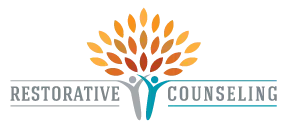Written by Stephanie Grunewald, Ph.D.
Feeling overwhelmed trying to manage your time? Juggling work, homework, social life, family, friends, and so much more can be exhausting. Still, only 18% of people have a proper time management system.1
Time Management is Stress Management
While many may not consider time management to be a form of stress management, the two are directly connected. Without effective time management, many people experience excessive stress. Conversely, having a good time management system will increase your productivity, give you a sense of control, and help you to feel accomplished instead of burnt out.
We’re here to help you make the most of your time
Contact Us
Proven Time Management Techniques
While this blog will not provide an exhaustive list of every time management strategy available, it will highlight several proven methods.
1. Set Realistic Expectations
To set yourself up for success, you must first assess your expectations. This relates to how much you are trying to complete each day, as well as how much time you feel you will need to complete the tasks. Take a moment to reflect on how much time you have and what can realistically be accomplished during that time.
Do you have to re-read the entire chapter for the third time or would a quick skim suffice?
Can you write a 20-page essay in just one hour?
Is it expected that you will reply to that email sent at 11:30 PM on Friday night or can you address it on Monday morning?
Overcoming perfectionism is critical to completing tasks. Aiming for perfection is rarely attainable and often leads people to focus on irrelevant details that prevent completing the overall task. What is required for this task to be completed and how will you know when you have achieved that?
2. Determine Productive Times
Are you a morning person or a night owl? Knowing this can help you determine which tasks are worked on during different times each day. For example, if you are a morning person, you may plan to accomplish all work that requires detail to attention earlier in the day and save creative work until later in the day. Or, perhaps a night owl may need some time to warm up each day and it is best to start with easier tasks and then shift into difficult tasks later in the day.
Take some time to reflect on when you feel you are at your best. Use trial-and-error to assess if some tasks are better suited for a certain time of day and then plan accordingly, using the Task List Approach detailed in #3.
3. Create a Task List
Using a task list is a critical time management skill for several reasons. The two main benefits: (1) it helps to focus your attention and (2) it helps you celebrate the wins of what you have accomplished.
At the end of each day, take a moment to review what you completed that day. Reflecting on your successes can help you feel a sense of accomplishment even if every item on the list hasn’t been checked off. Then, create a task list for what you need to get done the next day. Creating the list for the next day will allow you to relax knowing you have a plan for the next day
Avoid general tasks, such as “write term paper.” Instead, break this down into concrete tasks, such as:
- Create the outline
- Find 3 sources
- Draft the first paragraph
Small, measurable tasks will help you to stay focused and will lead to a sense of accomplishment along the way. Here are two ways you might consider approaching the tasks on your list:
a. The Avalanche Approach
The Avalanche Approach requires you to tackle the biggest, most difficult task first. In doing so, you know that it will only get easier from there. Investing most of your energy first will then allow you to focus on smaller, easier tasks throughout the rest of the day.
b. The Snowball Approach
The Snowball Approach helps you gain momentum because you complete small, simple tasks first. In doing so, you achieve quick wins that help build up confidence and make you want to keep going.
4. Avoid Multitasking
Although many people like to think they can effectively multitask, this is a myth! In fact, “Far from increasing productivity, switching back and forth between tasks actually makes those same tasks take even longer, ultimately slowing down the pace at which work can be completed.”2
Throughout the day, whenever you think of something you “need” to do, write it down rather than switching between tasks. Then, at the end of the day, you can review all the items and identify which ones you will address using the Task List Approach detailed in #3 above.
In order to assist with this, you must minimize distractions…
5. Minimize Distractions
Ideally, you would have a distraction-free work environment. Sadly, that seems nearly impossible in the world today due to smartphones, social media, various messaging apps, internet, email, co-workers, and so on. However, you need not give in to all distractions. Instead, turn off pop-up notifications, put your phone on silent, and only have things relevant to the task open. If you cannot be interrupted, put up a note alerting others that you are busy and ask them to email you instead (because you have shut off the alert and will only see it once you are done with the task at hand).
Shutting off reminders and pop-ups requires that you set aside time each day to check emails, messaging site, and any other means of communication.
Practicing Time Management Skills
Here, you can see five approaches to successfully managing your time that all connect to one another. Take a moment to reflect on what you are doing now, how you work best, and then slowly build in changes to ensure each day you are setting yourself up for success. Effective time management improves efficiency and reduces stress. These techniques will help improve work productivity during the day and allow you to relax knowing you have a plan!
Do not feel like you have to do this all alone! The clinicians at Restorative Counseling are here to help you address your stress by managing your time better. Schedule an appointment today to get started!
Resources:

Hello! I’m Stephanie.
I help adults identify strengths and learn strategies to manage stress, deal with life transitions, and overcome anxiety. Read more about me.
Follow Restorative Counseling
Sign up for our newsletter

